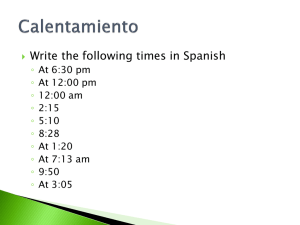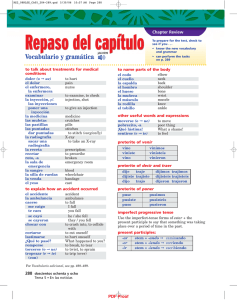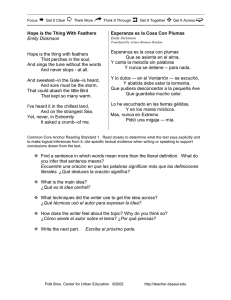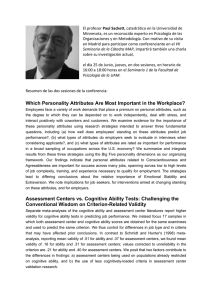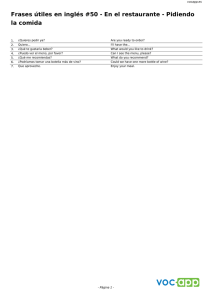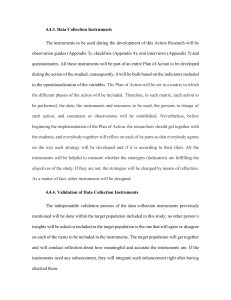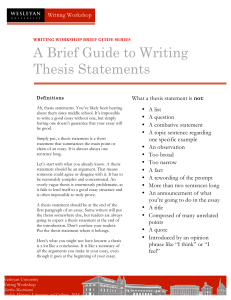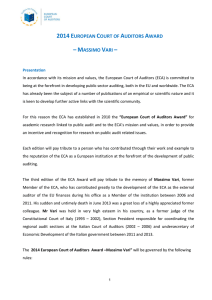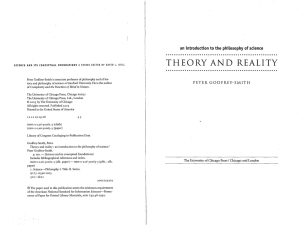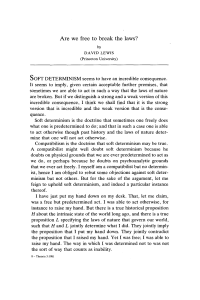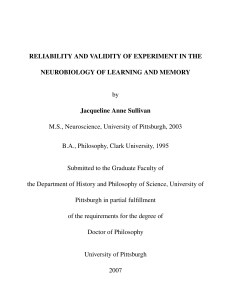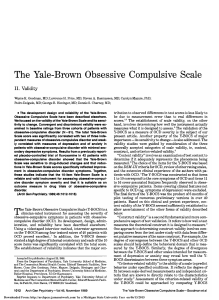Examen Libre: Lecto-comprensión Nivel I FECHA: 8 de agosto de
Anuncio
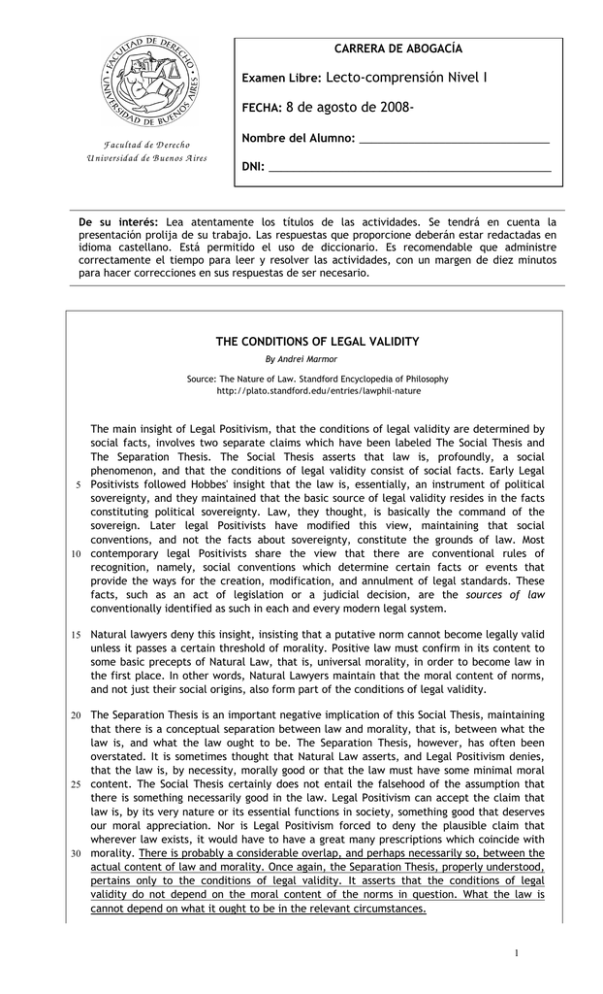
CARRERA DE ABOGACÍA Examen Libre: Lecto-comprensión Nivel I FECHA: 8 de agosto de 2008Facultad de D erecho U niversidad de Buenos A ires Nombre del Alumno: _______________________________ DNI: ______________________________________________ De su interés: Lea atentamente los títulos de las actividades. Se tendrá en cuenta la presentación prolija de su trabajo. Las respuestas que proporcione deberán estar redactadas en idioma castellano. Está permitido el uso de diccionario. Es recomendable que administre correctamente el tiempo para leer y resolver las actividades, con un margen de diez minutos para hacer correcciones en sus respuestas de ser necesario. THE CONDITIONS OF LEGAL VALIDITY By Andrei Marmor Source: The Nature of Law. Standford Encyclopedia of Philosophy http://plato.standford.edu/entries/lawphil-nature The main insight of Legal Positivism, that the conditions of legal validity are determined by social facts, involves two separate claims which have been labeled The Social Thesis and The Separation Thesis. The Social Thesis asserts that law is, profoundly, a social phenomenon, and that the conditions of legal validity consist of social facts. Early Legal 5 Positivists followed Hobbes' insight that the law is, essentially, an instrument of political sovereignty, and they maintained that the basic source of legal validity resides in the facts constituting political sovereignty. Law, they thought, is basically the command of the sovereign. Later legal Positivists have modified this view, maintaining that social conventions, and not the facts about sovereignty, constitute the grounds of law. Most 10 contemporary legal Positivists share the view that there are conventional rules of recognition, namely, social conventions which determine certain facts or events that provide the ways for the creation, modification, and annulment of legal standards. These facts, such as an act of legislation or a judicial decision, are the sources of law conventionally identified as such in each and every modern legal system. 15 Natural lawyers deny this insight, insisting that a putative norm cannot become legally valid unless it passes a certain threshold of morality. Positive law must confirm in its content to some basic precepts of Natural Law, that is, universal morality, in order to become law in the first place. In other words, Natural Lawyers maintain that the moral content of norms, and not just their social origins, also form part of the conditions of legal validity. The Separation Thesis is an important negative implication of this Social Thesis, maintaining that there is a conceptual separation between law and morality, that is, between what the law is, and what the law ought to be. The Separation Thesis, however, has often been overstated. It is sometimes thought that Natural Law asserts, and Legal Positivism denies, that the law is, by necessity, morally good or that the law must have some minimal moral 25 content. The Social Thesis certainly does not entail the falsehood of the assumption that there is something necessarily good in the law. Legal Positivism can accept the claim that law is, by its very nature or its essential functions in society, something good that deserves our moral appreciation. Nor is Legal Positivism forced to deny the plausible claim that wherever law exists, it would have to have a great many prescriptions which coincide with 30 morality. There is probably a considerable overlap, and perhaps necessarily so, between the actual content of law and morality. Once again, the Separation Thesis, properly understood, pertains only to the conditions of legal validity. It asserts that the conditions of legal validity do not depend on the moral content of the norms in question. What the law is cannot depend on what it ought to be in the relevant circumstances. 20 1 Many contemporary legal Positivists would not subscribe to this formulation of the Separation Thesis. A contemporary school of thought, called Inclusive Legal Positivism, endorses the Social Thesis, namely, that the basic conditions of legal validity derive from social facts, such as social rules or conventions which happen to prevail in a given community. But, Inclusive Legal Positivists maintain, legal validity is sometimes a matter of 40 the moral content of the norms, depending on the particular conventions that happen to prevail in any given community. Those social conventions on the basis of which we identify the law may, but need not, contain reference to moral content as a condition of legality 593. 35 A. Responder. 1. ¿ Qué se afirma en la primera oración? 2. ¿ Cuál es el fundamento de la Tesis Social? (Indicar reglones de referencia). Renglones de referencia: 3. ¿ Qué fundamenta la referencia a Hobbes? 2 4. ¿En qué sentido evolucionó el positivismo? 5. ¿Cuál es, en detalle, la postura del Derecho Natural respecto de la de los positivistas? (Indicar reglones de referencia). Renglones de referencia: 6. ¿Qué se afirma sobre la Tesis de la Separación en la primera oración del tercer párrafo? (Renglón 21). 7. ¿Qué fundamenta la afirmación de la segunda oración del tercer párrafo? (Renglón 23). 3 B. Expresar en castellano las oraciones subrayadas en el texto. “There is probably a considerable overlap, and perhaps necessarily so, between the actual content of law and morality. Once again, the Separation Thesis, properly understood, pertains only to the conditions of legal validity. It asserts that the conditions of legal validity do not depend on the moral content of the norms in question. What the law is cannot depend on what it ought to be in the relevant circumstances." (Renglones 31 - 35). C. Indicar con una X si las siguientes afirmaciones son verdaderas o falsas. Incluir los fundamentos que validan la opción. Verdadera (a) Falsa Sólo un reducido número de positivistas jurídicos reconocen la validez de la Tesis de la Separación. Fundamentación: (b) Los positivistas consustanciados con la Escuela del Positivismo Jurídico Inclusivo consideran de relevancia los aspectos morales incluidos en las normas. Fundamentación: 4

